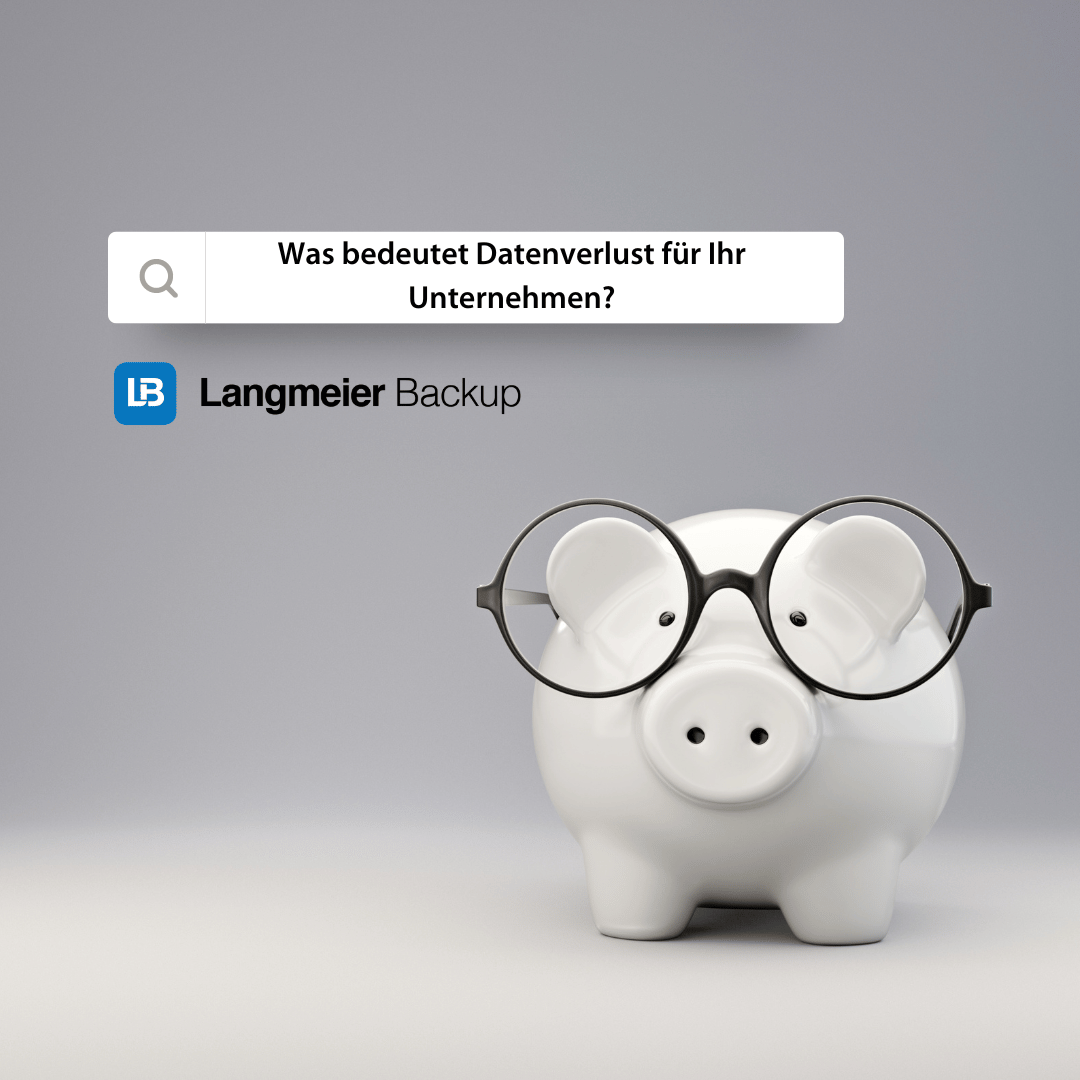Data loss
The real cost question: What does data loss mean for your company?
Data loss is not only annoying for companies, it can also have devastating financial consequences. The costs associated with the loss of sensitive information go far beyond the recovery effort alone. In this article, we will take a closer look at the question: "How much does data loss really cost a company?" and examine the various aspects and potential impact on a company's financial health.

Direct costs of data recovery:
The most obvious cost in the event of a data loss is the expense of recovering the lost data. This may include the use of data recovery services, the purchase of replacement hardware or software, and the fees for IT professionals to oversee and perform the recovery processes.
Loss of productivity and downtime:
Data loss inevitably leads to work interruptions and a decrease in productivity. Employees cannot work efficiently if critical information is missing. The time spent recovering data also means a loss of productivity. This factor should be taken into account when calculating the overall costs.
Loss of reputation and customer churn:
The loss of sensitive information can shake customer confidence and lead to a significant loss of reputation. Customers today are sensitized to data protection issues and are critical of companies that do not adequately protect their data. This can lead to customer churn, which can have long-term financial implications.
Regulatory penalties and legal costs:
Depending on the industry and location, companies can face legal consequences and regulatory penalties if data breaches occur. Compliance with data protection regulations is not only ethical, but also required by law. Legal disputes and fines can mean significant financial burdens.
Costs for security improvements:
Following a data breach, organizations are often forced to strengthen their security measures. This can result in the implementation of more advanced security technologies, employee training and other preventative measures. The associated costs must also be included in the overall calculation.
Langmeier Backup 12
By proactively using Langmeier Backup 12, companies can not only minimize the consequences of data loss, but also effectively prevent it. Investing in a reliable backup solution such as Langmeier Backup 12 can therefore be seen as a preventative measure to avoid the financial impact and loss of reputation associated with data loss.
About the Author: Natalia Bobro
Chief Digital Transormation Officer
Natalia Bobro is Langmeier Software's Chief Digital Transformation Officer (CDTO) and in this role has responsibility for the company's overall business development and strategy. As CDTO, Natalia Bobro focuses on positioning Langmeier Software as a leading technology company in software and services.
Under Bobro's leadership, Langmeier Software focuses on a broad range of business areas, including artificial intelligence (AI) applications, cloud services and enterprise applications. It invests heavily in the development of new software products and solutions, and promotes the adoption of AI & cloud services such as Cloud Backup, aBusiness Genius and aBusiness Suite.
Further lookup: Backups, Data backup, Data recovery, Data recovery, Simple backup, Mirror data automatically, Computers, Windows, Backup Management
Articles relevant to the topic
Which backup type is the best choice for my data?This is how important data backup is in real lifeFAT32 or NTFS? Which format is better for backup?
Post a comment here...



